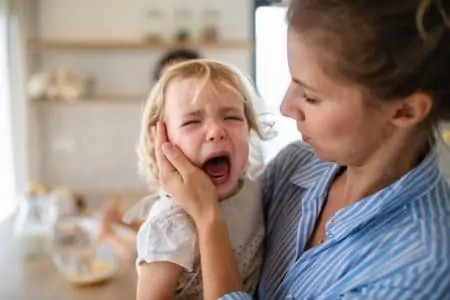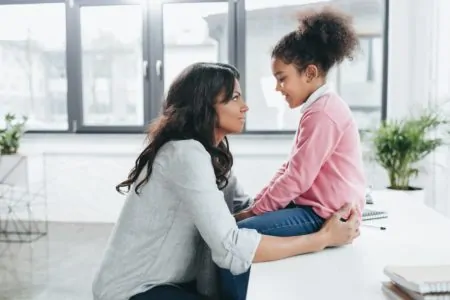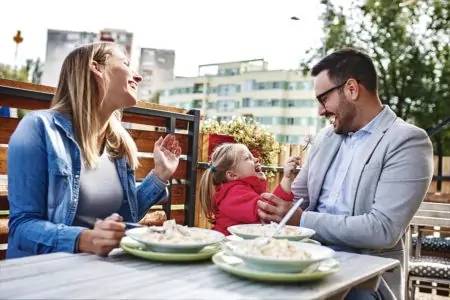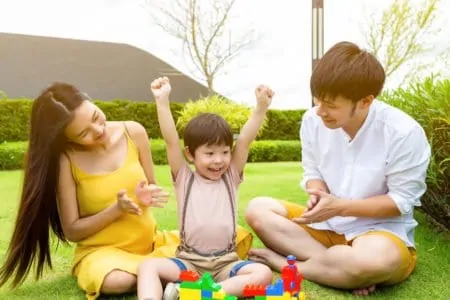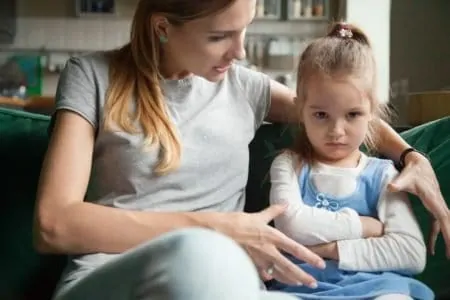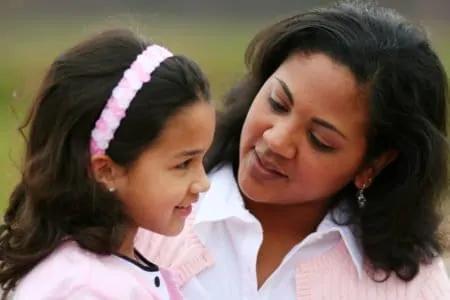Children are naturally curious, and they crave information. This prompts them to ask questions. Almost every parent has experienced this — they ask you one question, only to bombard you with many others following your answer.
Have you ever tried turning the tables and taking on the role of the investigator?
Presenting pertinent questions to kids can help expand their views and make them more open-minded.
They get to think about solutions to problems, or you can spark their curiosity.
It’s important as parents to ask our children questions. The information gathered from their answers can help us enrich their lives and make the right decisions for them.
We have gathered a list of 250 questions to give you some inspiration for starting conversations with your child.
- Would You Rather Questions for Kids
- Funny Questions to Ask Kids
- Questions to Ask Your Kids About School
- Questions to Ask Kids to Get to Know Them
- Open-Ended Questions for Kids
- Questions for Small Kids
- Science Questions for Kids
- Religion-Related Questions for Kids
- Questions for Older Kids
- Why Should We Ask More Questions?
- Why Ask Open-Ended Questions?
- Why Ask Closed-Ended Questions?
- How to Engage Children in Conversations
- FAQs
Would You Rather Questions for Kids
“Would you rather” questions are excellent for children of any age. For young ones, it could be about toys. With older children, you can ask about dreams and aspirations.
Here are some ideas:
- Would you rather slide down a slide or swing on a swing?
- Would you rather play football or tennis?
- Would you rather be smart or hilarious?
- Would you rather ride a horse or an elephant?
- Would you rather have oatmeal for breakfast or lunch?
- Would you rather be six years older or three years younger?
- Would you rather be a painter or a sculptor?
- Would you rather be a good singer or a fantastic guitar player?
- Would you rather go to a water park or an amusement park?
- Would you rather be a superhero or a wizard?
- Would you rather sit with a group in school or sit alone?
- Would you rather watch fireworks or go to a circus performance?
- Would you rather play in the rain or snow?
- Would you rather brush your teeth with toothpaste or water?
- Would you rather be a captain of a ship or a pilot of an airplane?
- Would you rather be a famous writer or a famous performer?
- Would you rather create your own holiday or a new sport?
- Would you rather have a tall neck like a giraffe or a long nose like an elephant?
- Would you rather crawl like a crab or walk on all fours?
- Would you rather see things up close or far away?
- Would you rather be a fast swimmer or a fast runner?
- Would you rather have long hair like Rapunzel or be blue like Smurfette?
- Would you rather be able to create webs like Spider-Man or have heat vision like Superman?
- Would you rather sail the seas or climb a mountain?
- Would you rather have the ability to jump like a frog or make loud sounds like an elephant?
- Would you rather look after a pet or a baby?
- Would you rather be able to read people’s minds or find all your lost stuff?
- Would you rather spend your day in a zoo or a garden full of trees and flowers?
- Would you rather ride a scooter or a bike?
- Would you rather work alone on school projects or work with your friends?
- Would you rather know sign language or be an expert on reading lips?
- Would you rather be able to speak four languages fluently or talk every language on Earth with a silly accent?
- Would you rather understand what animals say or have them understand what you say?
- Would you rather eat something sweet or sour?
- Would you rather take the best pictures or be the most amazing model?
- Would you rather stay indoors for the rest of the day or spend the day outside in the garden?
Funny Questions to Ask Kids
Children love being silly; sometimes, asking a funny question can brighten their day. Laughter is a way to engage children and make them open up. Funny questions can start a dialogue to help you gather information and ask more serious questions.
- What would you do if you could be invisible for one day only?
- Would you rather be as small as an ant or as tall as a giant?
- If you could visit one planet in the universe, which one would it be?
- Do unicorns fart rainbows?
- What’s the worst name you’ve ever heard someone call their dog?
- How old do you think mommy/daddy is?
- Do you want boogers or spaghetti for dinner?
- What’s the silliest thing you can think of?
- If you had your own restaurant, would you rather serve gross food or delicious food?
- Would you rather not shower ever again but have to wear wet clothes or shower every day?
- What makes you feel like dancing?
- If you could rename fruits, what would you call them?
- What’s the grossest thing you have ever seen?
- Would you rather have jiggly legs for a day or the biggest arm muscles for a week?
- If you were a book, what would your title be?
- If you found a genie, what would you wish for?
- If you could only celebrate one holiday for the next ten years, what would it be?
- If you could have anything in the world, what would you want?
- How many stars exploded in the galaxy today?
- Who makes the smelliest farts?
- What does a fox say?
- If you could become any cartoon character for one day, who would you be?
- If you had a secret hideout, where would it be, and what would you keep inside it?
- What’s the funniest sound you’ve ever heard?
- If you could go back in time, where would you travel to?
- If you were a fart, would you prefer to be silent but deadly or loud and proud?
- If you were given the power to get rid of one thing in the world, what would you choose?
- What’s the best combination of weird foods you have ever tried, and what were they?
- If you could invent something, what would it be?
- Would you rather swap places with mom or dad for a day?
- Do you prefer cats, dogs, or fluffy chinchillas?
- Would you rather break something really expensive and make mom and dad angry or break something worthless that you’d miss?
- If you could meet any historical person, who would that be?
- What’s your favorite method of laughing?
- Can you describe colors without mentioning their names?
- Why do you go to sleep at night and not in the morning?
- Would you get angry if I stole your candy?
- If you had a parrot, what would you teach it to say?
Questions to Ask Your Kids About School
It’s valuable to ask your child about their school life and be open to different answers. You can discover if they enjoy school, what their favorite topics are, if they’re having trouble in a subject, or even if they feel intimidated.
It’s never too early to discover these things, so also ask younger children about kindergarten or preschool. Here are some questions to get you started.
- What or who made you smile today?
- What book did your teacher read for the class today?
- What was your favorite part of your school day?
- Did you help anyone in class today?
- Did someone make you laugh?
- Who sat next to you at lunch?
- Did anyone show an example of unkindness? What did you do?
- What examples of kindness did you see today?
- Did anyone say something that surprised you?
- Give your day a rating of one to ten — why did you choose that number?
- What challenged you today?
- Did anyone make you laugh today?
- Did someone or something inspire you today?
- What new things did you learn?
- Did someone get in trouble today? What happened?
- What was your favorite lunch/snack item today?
- Do all the class play together at recess?
- What was the worst part of your day?
- How were you brave today?
- What questions did you ask your teacher today?
- What are you reading in class?
- What was the most challenging rule you had to follow?
- If you could go back and change one thing about today, what would that be?
- What made you proud today?
- If you could sit anywhere in class, where would that be?
- What’s your favorite subject?
- What’s your least favorite subject?
- What do you hope to achieve before school ends this year?
Questions to Ask Kids to Get to Know Them
Whether you’re a teacher who wants to know more about your students or a parent who feels a little lost about a child’s behavior, these questions can help. Don’t feel bad — children aren’t easy to figure out. Why can’t they come with instructions?
- Who is your favorite character, and why?
- If you could pick any name for yourself, what would it be?
- What superhero powers would you want to have?
- What’s your favorite TV show, and why is it the best?
- What are you thankful for?
- Are you excited about your life?
- If you could change anything about your life, what would it be?
- What’s your biggest fear?
- What would you say is your biggest strength?
- How do you overcome your weaknesses?
- What’s your favorite color?
- What’s your happiest memory?
- What makes you sad?
- Do you prefer eating sweet foods or savory?
- What can we do to be better parents?
- If you could choose any animal to be your pet, which one would you pick?
- What do you hope to be when you grow up?
- What has been the worst day of your life?
- What’s the best thing in your life?
- If you could create a new color, how would it look, and what would you call it?
- What is the one place you hope to travel to one day?
- If you could change anything about your family, what would you choose?
- If you could change any rule, which one would it be?
- What’s your motto?
- If you could only bring four things when traveling, what would they be?
- If you were to name a new planet, what would you call it?
Open-Ended Questions for Kids
Open-ended questions are those that have no definitive right or wrong answers. They should lead to conversation and maybe even more questions. Here are some ideas.
- Do you enjoy any sports, and why did you choose those?
- What foods do you love and why?
- What’s your favorite thing about school?
- Why did you decide to draw that picture?
- If you could do any activity in your free time, what would you choose?
- What makes a nice friend?
- If you had a magic power, what would it be, and why?
- How did this happen?
- How does this work?
- Why did you choose to read that book?
- What does this remind you of, and why is that?
- What happened next?
- What are you most looking forward to this month?
- How are these different?
- What could we have done instead?
- What makes you laugh the most, and why?
- What’s the first thing you want to do when you’re at the beach?
- What did you enjoy the most about this weekend, and why?
- What other tools can you use?
- What do you think this book is about?
- Why is that your favorite toy?
- What do you think about school?
- Are there other solutions to the problem?
- What can you do differently next time?
- How did you create this color?
- Can you tell me about what you’re doing?
- What does this represent to you?
- Can you compare these two — how are they different?
- How did you predict the answer?
- What else would you like to know?
- What can you tell me about this?
- What do you think will happen?
Questions for Small Kids
With small children, it’s best to present simple questions like the “Would you rather…” examples we listed earlier. Keep questions for toddlers short and use words they understand. Here are a few examples.
- Would you rather eat raisins every day or peas?
- Would you rather swim with a shark or a crocodile?
- Would you rather have a hole in the back of your pants or a broken zipper?
- Would you rather take a shower or have a bath?
- What would you rather have stuck on your shoe — gum or dog poop?
- Would you rather eat salad or liver?
- Would you rather have a pet snake or a pet scorpion living in your room?
- Would you rather be a sports star or a pop star?
- Would you rather eat Starbursts or chocolate for the rest of the day?
- If your toys could talk, what would they say?
- If you could draw anything right now, what would you draw?
- What dreams do you think you’ll dream tonight?
- What do you think animals talk about?
- Do you like it when people share with you?
- Would you rather get in trouble with your teacher or your parents?
- What makes you awesome?
- What makes someone smart?
- If you were a teacher, what would you teach your students?
- What is the craziest thing you’ve ever eaten?
- What would you do if you made the rules at home?
- Who’s your favorite book character?
- What’s your favorite outfit?
- What’s your favorite snack?
- What’s your favorite animal?
- What’s your favorite thing to do when you’re outside?
- What do you take to bed with you every night?
- What do you love to eat for breakfast?
- What should we make for dinner on your birthday?
Science Questions for Kids
It’s never too early to get kids involved in science. Don’t worry if you don’t know all the answers — this is an opportunity to practice problem-solving and social interaction skills. You can search for the answers separately and come together to discuss your findings or do your research together.
Here are some questions you can ask:
- Why is ocean water salty?
- Why do leaves change color?
- Why does the moon have craters?
- Why is the sky blue?
- What causes thunder and lightning?
- Why is the ocean blue?
- Why is the ocean warm or cold?
- How many stars do you think there are in the galaxy?
- How many planets are in our solar system?
- Is the sun a star or a planet?
- How far away is the moon?
- In which galaxy is Earth?
- What is Earth’s primary source of energy?
- Why can’t we breathe underwater?
- Is it easier to speak through water or air?
- What’s the longest river on Earth?
- What happens when water freezes?
- What causes waves?
Religion-Related Questions for Kids
Whether you’re religious or not, these religion-related questions can help expand your child’s worldview. Here are a few examples:
- What do you imagine Heaven to look like?
- What smells and sounds do you think Mary and Joseph experienced in the stable on Christmas night?
- How do you picture God?
- What do you think angels look like?
- Do you have a favorite Bible verse? Why did you pick that one?
- How many religions are there in the world?
- Who were the first two people that God created?
- Why do you think God always wants us to tell the truth?
- How do you think we could make the world a better place?
- Where do you think Heaven is?
- Why do you think God created Earth and people?
- Where do you think God lives?
- How do you think Jesus walked on water?
Questions for Older Kids
Sometimes, we need a good conversation starter to get older children talking. This can lighten the mood after a long day or even encourage them to share their feelings. It’s also an excellent way to get them thinking about their future.
It’s not a good idea to make questions appear interrogative with teenagers, as you may get a negative reaction.
- What do you think is the best part about getting older?
- What are you least looking forward to when you get older?
- Do you feel ready to leave middle school? Why is that?
- What are your worries about becoming a teenager?
- What privileges are you looking forward to the most about growing up?
- Name two of your strengths and two weaknesses. Why did you pick those?
- Why do you think some kids smoke or use drugs?
- What’s one mistake you wish you could go back and change?
- Who do you wish you could be like? Why is that?
- Which of your accomplishments are you most proud of this year?
- What are your five best traits, and why?
- What do you love doing?
- Out of everything you learned as a kid, what do you think you’ll find most useful as a teenager?
- What do you think your life will be like ten years from now?
- If you could change the world, how would you do it?
- Who are your three best role models, and why?
- What’s the hardest part about being a child/teen?
- What’s the difference between smart and wise?
- What does success mean to you?
- What is your biggest worry?
- What is the most important decision you will ever make?
- What has been the proudest moment of your life?
- Is there a question you always wanted to ask me?
- What do you think the meaning of life is?
- What is something that you always wanted to tell me?
- What is your biggest dream?
- What’s your favorite place to spend time?
- Did you ever get your feelings hurt? How did you deal with it?
- What do you think those people feel?
- Where do you want to travel?
- Would you rather learn about coding or take an art class?
Why Should We Ask More Questions?
Asking questions has many benefits. Asking sincere questions automatically makes you an active listener. It shows the person that you’re interested and paying attention.
Being a good listener is an essential trait in parents. It strengthens bonds, gathers information about the child, and lets them know they matter to you. More importantly, it can be crucial to their development (1).
We’re expanding our child’s curiosity and creativity by using questions, particularly open-ended ones. They get to exercise their ability to reason, as well as gain independence.
When you ask your child questions from an early age, they learn to think about things. Open-ended questions are great because there’s no right answer. That relieves some of the pressure kids might feel to answer correctly.
Questions and conversations help children gain an understanding of the world they live in. They relate the new information to experiences they’ve had in the past and present and apply it to their experiences in the future.
Why Ask Open-Ended Questions?
There are several benefits of asking open-ended questions, including:
- Encourages thinking: Open-ended questions encourage children to think beyond the obvious.
- Finding solutions: Children get to think of as many possibilities as they’d like before settling on an answer. This is excellent for exercising problem-solving skills.
- Helps to include more information: Some questions allow the child to add feelings and a different attitude to gather more information. This promotes empathy.
- Better understanding: Such questions can increase their knowledge of a topic and create cooperation.
- Exercises short and long-term memory: Because some questions require the child to recall past or recent experiences, they get exercise memory skills.
- Increases vocabulary and speech: When answering the questions, children must explain and describe. This expands their vocabulary, language, and speech.
- Require an active listener: By being an active listener to an open question, we show our children that their explanations and answers are important.
How to Use Open-Ended Questions
Open-ended questions can be almost anything — it depends more on the words you use. They often begin with “how” or “why” or include phrases indicating that you want to know more, such as “Tell me about…,” “I want to hear more about…” or “I’d like to know more about…”
Starting the conversation with a “What” question that has an exact answer is excellent for young children. You can point to something and ask, “What is that?” or “What’s this called?”
Once they answer, try to repeat back what they’ve said — this lets them know their answer is right, like, “Yes, that is a bike.” You’re giving them the confidence to continue answering.
Now it’s time to expand your questions, but depending on their age, use simple words and short phrases. When keeping it simple, you allow them to imitate you, thus expanding the conversation. Here’s an example: “Yes, that is a blue bike. Where do you think that bike is going? Yes, it looks like it rides through the park.”
With older children, you can extend the questions further to challenge them a bit. Always remember that any answer will do — there’s no right or wrong.
Try to ask questions in a way so that your child can comprehend them. Even if they can’t find an answer, they should still be able to think about it.
Asking open-ended questions may take some practice. As parents, we are often guilty of asking closed-ended questions. It becomes the norm, especially when we’re busy and don’t have time to listen to lengthy answers.
But don’t worry; asking open questions is an easy habit to adopt.
Tips for Starting Open-Ended Questions
If you’re feeling a little lost as to how to start such a question, there are some phrases you can use:
- “What could happen if…”
- “I wonder why/what/if…”
- “How can we…”
- “Tell me more about it…”
- “In what way can/did/would…”
- “What would you do about…”
- “Why do you think…”
Once you’ve asked your question, give your child time to think before coming up with their answer. The younger your child is, the more time you should allow them. Young children generally require additional time to decide on an explanation and how to say it.
When asking open-ended questions, use them as conversation starters rather than for information gathering. You’ll soon experience some of the most interesting conversations. You may hear responses you never thought they’d come up with.
Why Ask Closed-Ended Questions?
Although open-ended questions are fantastic for sparking conversations, sometimes we need to ask closed-ended ones as well. Closed questions only require short or one-word responses, and sometimes, there’s only one right answer (2).
Closed questions are good at determining what the child knows. Caregivers and teachers often use them to find a starting point for learning.
They’re also excellent when you need a concise answer, like “Would you help me with dinner?” To this, the answer would be either “Yes” or “No.”
The issue, however, with closed questions, particularly with children, is that they tend to end conversations unless you add more. This prevents them from opening up or practicing their language skills and vocabulary.
It’s entirely up to you to determine what type of question you find appropriate for the situation. You can modify them how you’d like by changing the words or starting with a different one. Here are a few examples of closed- vs. open-ended questions:
Closed Questions
- Did you have fun at school?
- Did you paint this picture?
- Did you hit that boy?
- What’s your favorite snack?
Open Questions
- Can you tell me about your day at school?
- How did you paint this picture?
- Why is that boy crying? Can you tell me what happened?
- Can you tell me about your favorite snacks?
How to Engage Children in Conversations
One of the main points of asking questions is to expand your child’s language skills, and the best way is through conversations (3). Here are some tips to follow:
- Stay at eye level: Sit down next to your child so you look them in the eyes.
- Tune in and listen: Always remain an active listener. Even if your child isn’t using words yet, pay attention to their gestures and sounds.
- Take turns: If they don’t talk yet, give them room to communicate what they’re trying to say. Answer them with simple words and proceed to ask further.
- Question activities: Look at what they’re doing, looking at, or playing with, then ask them accordingly. Get them talking by asking various open-ended questions.
- Relate to experiences and interests: Avoid talking about the latest show on Netflix. Instead, ask about their interests — perhaps they’ve experienced something recently. My little one could go on and on about the time mommy almost got a parking ticket (Oops!).
- Add questions: To model new language, ask your child questions about their activities, such as what they’re going to do next or what happened here.
- Pay attention to facial expressions: Both parties should engage in the conversation. Take a look at their facial and body expressions. If they seem uninterested, change the subject.

